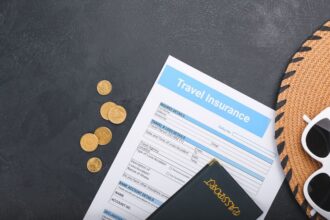The rhythmic clink of ice in cocktail glasses, the satisfying snap of a passport being stamped, the gentle rustle of foreign currency exchanging hands—these are the sounds that increasingly drown out the prudent whispers of financial advisors for many Canadians. In an era where experiences are valued as much as—if not more than—possessions, the allure of travel has become so potent that many are willing to sideline their financial goals to chase that next horizon.
Recent data suggests a striking shift in priorities. According to a 2023 survey by Bankrate, nearly 40% of Canadians admitted they’re willing to go into debt for vacation experiences, with millennials leading this charge at an even higher rate. The phenomenon represents more than just poor financial planning—it’s a cultural statement about what we value in our increasingly uncertain world.
“We’re seeing a fundamental reprioritization of spending habits,” explains financial psychologist Dr. Amanda Hirsch. “Post-pandemic, many Canadians are embracing a ‘life is short’ mentality. They’ve watched investment portfolios fluctuate wildly while simultaneously having their freedom of movement restricted. The psychological impact can’t be understated.”
This isn’t to say that financial literacy has declined. Rather, a conscious decision is being made. Modern travelers are well aware of the financial implications of their choices but are calculating value differently. The currency of memorable experiences—of standing beneath the Northern Lights or navigating bustling Bangkok street markets—seems to hold greater worth than the abstract future security promised by retirement accounts.
Travel industry professionals have naturally capitalized on this shift. Payment plans for vacations, once considered a last resort, are now prominently advertised features. “Book now, worry later” has become the unofficial slogan of an industry that understands its product has moved from luxury to perceived necessity for many Canadians.
Financial advisors watch this trend with mixed emotions. “I understand the psychological benefits of travel,” says Toronto-based financial planner Eliza Chen. “But what we’re seeing is troubling. Many clients come to me with five-figure vacation debts and minimal emergency savings. The math simply doesn’t work long-term.”
The situation becomes particularly concerning when examining retirement readiness. A 2022 report from the Financial Consumer Agency of Canada found that 35% of Canadians nearing retirement age have less than $100,000 saved. Meanwhile, the average Canadian household spends approximately $5,000 annually on vacations—a figure that has increased by nearly 20% since 2019, outpacing inflation.
This isn’t simply about financial discipline—or lack thereof. It reflects a deeper questioning of traditional financial wisdom. The old formula of work, save, retire has been disrupted by multiple economic crises, housing unaffordability, and changing work structures. If homeownership seems increasingly unattainable and pension security uncertain, why not allocate resources toward guaranteed joy?
Social media undoubtedly amplifies this tendency. The Instagram effect—where carefully curated travel moments create social currency—has transformed travel from private pleasure to public performance. The psychological rewards are immediate: likes, comments, and the subtle satisfaction of showcasing one’s worldliness.
“It’s not just about the travel itself,” explains social media researcher Dr. Jasmine Roy from McGill University. “It’s about identity construction. For many Canadians, especially younger generations, travel experiences form a core part of how they see themselves and want to be seen by others.”
Perhaps most telling is how travel spending has remained resilient even through economic downturns. While other discretionary spending categories contract during tough times, travel budgets show remarkable resistance to external financial pressures.
The travel industry has responded by creating more entry points for different budget levels. The democratization of travel experiences—from budget airlines to apartment-sharing platforms—has made “getting away” accessible to nearly every income bracket, if one is willing to accept the financial consequences.
Is this prioritization ultimately harmful? The answer isn’t straightforward. While financial experts reasonably caution against travel debt, psychologists point to the mental health benefits of new experiences and breaks from routine. The tension between present joy and future security represents one of the fundamental challenges of modern financial planning.
What seems clear is that this isn’t merely a trend but a values realignment. Canadians are increasingly measuring wealth not just in dollars saved but in stamps on their passports and stories they can tell. The question remains whether we can find a sustainable balance between wanderlust and financial prudence.
Perhaps the path forward involves more creative financial planning that acknowledges travel as a core value rather than an occasional splurge. Until then, many Canadians will continue making their choice clear with every boarding pass purchased: some experiences simply can’t wait for retirement.
After all, what’s the value of a well-funded future if you arrive there without having truly lived?
For more insights on evolving Canadian values and spending habits, visit our CO24 Culture and CO24 Trends sections, where we continue to track the shifting landscapes of modern life.










